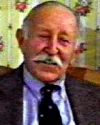(2000-2002)
Created by Christopher Titus, Jack Kenny, Brian Hargrove
Starring Christopher Titus, Stacy Keach, Cynthia Watros, Zach Ward, and David Shatraw.
IMDB Entry
In the 1990s, probably due to the influence of Seinfeld, the TV networks started scouring the standup clubs to create vehicles for sitcoms. So you had things like Everyone Loves Raymond, Home Improvement, and King of Queens. These all showed a warts-and-all family life where there were problems and frustrations and wacky quirks. Toward the end of this, though, stand-up comic Christopher Titus had his own sort of show. The main difference: the family was psychotic (sometimes literally).
Titus had grown up in a wildly dysfunctional family: an alcoholic, selfish father, a mentally disturbed mother, and run-ins with drugs and drinking. After nearly killing himself by falling into a bonfire, he managed to turn his life around and turned to comedy. After the success of a one-man show, Fox gave him a time slot for his autobiographical comedy, Titus.
 In it, Titus was dealing with his alcoholic and selfish father, Ken (Stacy Keach), his not very bright brother, Dave (Zach Ward*), his nice guy friend, Tommy (David Shatraw), and his girlfriend Erin (Cynthia Watros), who kept him sane.
In it, Titus was dealing with his alcoholic and selfish father, Ken (Stacy Keach), his not very bright brother, Dave (Zach Ward*), his nice guy friend, Tommy (David Shatraw), and his girlfriend Erin (Cynthia Watros), who kept him sane.
The show had its own regular structure. It would start out with Titus addressing the camera about the theme for the episode (shot in black and white and referred to as the neutral space). There would be quick cuts to scenes from his past to illustrate his point, then the story for the episode would unfold (usually on a single set), cutting back to to the neutral space from time to time, with more inset scenes. The show would end in the neutral space, usually ending with the same line that started it.
The Titus family was by far the most dysfunctional one** on TV and the reason was Ken Titus. He had less compassion than a brick wall and was completely insensitive to the feelings of others -- other than trying to make them as miserable as possible. At the same time, he was very successful as a ladies' man, even if he had trouble dealing with a relationship once it went past dating (as his five marriages attest). Stacy Keach had a field day portraying the nastiest father ever to appear on TV.
The show had a very dark edge. The themes were not the usual fodder for comedy -- alcoholism, schizophrenia, heart attacks, AIDS, death, abuse (both emotional and physical***) -- without being gross or tasteless.
Christopher Titus is, of course, great in the role; it was his life, after all. Zach Ward is fun as his doofus, pot-smoking bother, who lives with Ken. And Cynthia Watros deserves praise for taking the role as the sane one faced with the madness (though she has some baggage of her own).
The show was a critical and ratings success in a limited run in 2001, so was brought back. But as time went on, there was tension between Titus and Fox about how much he was pushing the envelope. Toward the end, Fox offered some story suggestions that Titus didn't like. When he turned them down, they stopped promoting the show, its ratings dropped, and it was canceled.
Great comedy always surprises, and you couldn't get better surprises than Titus. It's a shame it went off the air.
______________________________________________
*Who previously had gained film immortality by playing Scut Farkus in A Christmas Story.
**It was so closely based upon Titus's own family that Fox insisted that he get them all to sign releases promising not to sue. They all did -- but Ken Titus insisted on getting a new truck in return.
***Not by Ken. For all his failings, he didn't hit his kids unless they challenged him to a fight.

 1973)
1973) 


 You don't expect erudition from a TV sportcaster. Their jobs are to describe the action and add interesting and relevant anecdotes and analysis to the pictures on the screen. That is, unless the sportscaster was Heywood Hale Broun.
You don't expect erudition from a TV sportcaster. Their jobs are to describe the action and add interesting and relevant anecdotes and analysis to the pictures on the screen. That is, unless the sportscaster was Heywood Hale Broun.